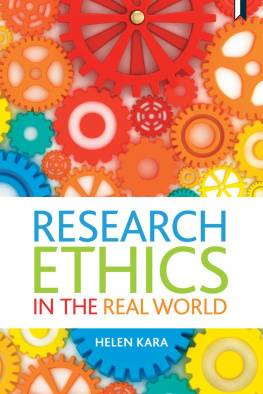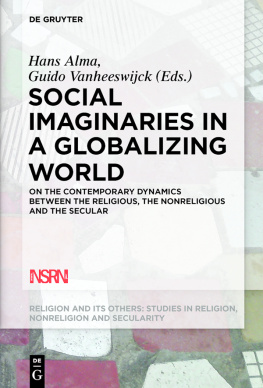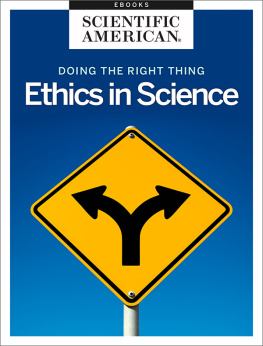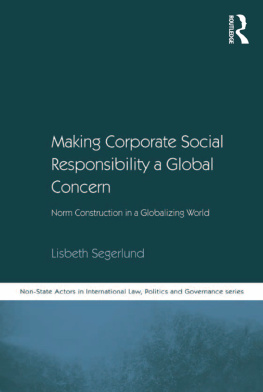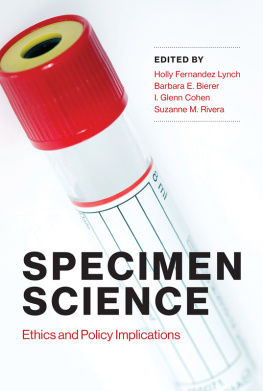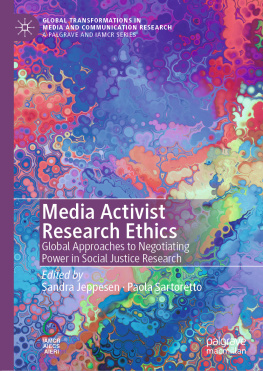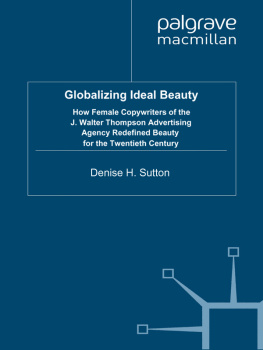Social Science Research Ethics for a Globalizing World
Research in the humanities and social sciences thrives on critical reflections that unfold with each research project, not only in terms of knowledge created but also in whether chosen methodologies served their purpose. Ethics forms the bulwark of any social science research methodology, and it requires continuous engagement and reengagement for the greater advancement of knowledge. Each chapter in this book will draw from the empirical knowledge created through intensive fieldwork and provide an account of ethical questions faced by the contributors, placing them in the context of contemporary debates surrounding the theory and practice of ethics. The chapters have been thematically organized into five sections: Feminist Ethics: Cross-Cultural Reflections and Its Implications for Change; Researching Physical and Sexual Violence in Nonacademic Settings: A Need for Ethical Protocols; Human Agency, Reciprocity, Participation and Activism: Meanings for Social Science Research Ethics; Emotions, Conflict and Dangerous Fields: Issues of Safety and Reflective Research; and Social Science Education: Training in Ethics or Ethical Training and Ethical Publicizing. This interdisciplinary volume will interest students and researchers in academic and nonacademic settings in core disciplines of Anthropology, Sociology, Law, Political Science, International Relations, Geography, or interdisciplinary degrees in Development Studies, Health Studies, Public Health Policy, Social Policy, Health Policy, Psychology, Peace and Conflict Studies and Gender Studies.
Keerty Nakray is Associate Professor at Jindal Global Law School in New Delhi, India.
Margaret Alston is Professor of Social Work and Head of Department at Monash University, Australia.
Kerri Whittenbury is a Senior Research Fellow in the Gender, Leadership and Social Sustainability (GLASS) research unit at Monash University, Australia.
Routledge Advances in Research Methods
1E-Research
Transformation in Scholarly Practice
Edited by Nicholas W. Jankowski
2The Mutual Construction of Statistics and Society
Edited by Ann Rudinow Stnan, Heidi Mork Lomell, and Svein Hammer
3Multi-Sited Ethnography
Problems and Possibilities in the Translocation of Research Methods
Edited by Simon Coleman and Pauline von Hellermann
4Research and Social Change
A Relational Constructionist Approach
Sheila McNamee and Dian Marie Hosking
5Meta-Regression Analysis in Economics and Business
T. D. Stanley and Hristos Doucouliagos
6Knowledge and Power in Collaborative Research
A Reflexive Approach
Edited by Louise Phillips, Marianne Kristiansen, Marja Vehvilinen and Ewa Gunnarsson
7The Emotional Politics of Research Collaboration
Edited by Gabriele Griffin, Annelie Brnstrm-hman and Hildur Kalman
8The Social Politics of Research Collaboration
Edited by Gabriele Griffin, Katarina Hamberg and Britta Lundgren
9Place in Research
Theory, Methodology, and Methods
Eve Tuck and Marcia McKenzie
10Video Methods
Social Science Research in Motion
Edited by Charlotte Bates
11Qualitative Analysis in the Making
Edited by Daniella Kuzmanovic and Andreas Bandak
12Non-Representational Methodologies
Re-Envisioning Research
Edited by Phillip Vannini
13Cultural Mapping as Cultural Inquiry
Edited by Nancy Duxbury, W.F. Garrett-Petts and David MacLennan
14Researching Marginalized Groups
Edited by Kalwant Bhopal and Ross Deuchar
15Methodologies of Embodiment
Inscribing Bodies in Qualitative Research
Edited by Mia Perry and Carmen Liliana Medina
16Social Science Research Ethics for a Globalizing World
Interdisciplinary and Cross-Cultural Perspectives
Edited by Keerty Nakray, Margaret Alston and Kerri Whittenbury
First published 2016
by Routledge
711 Third Avenue, New York, NY 10017
and by Routledge
2 Park Square, Milton Park, Abingdon, Oxon OX14 4RN
Routledge is an imprint of the Taylor & Francis Group, an informa business
2016 Taylor & Francis
The right of the editors to be identified as the authors of the editorial material, and of the authors for their individual chapters, has been asserted in accordance with sections 77 and 78 of the Copyright, Designs and Patents Act 1988.
All rights reserved. No part of this book may be reprinted or reproduced or utilised in any form or by any electronic, mechanical, or other means, now known or hereafter invented, including photocopying and recording, or in any information storage or retrieval system, without permission in writing from the publishers.
Trademark notice: Product or corporate names may be trademarks or registered trademarks, and are used only for identification and explanation without intent to infringe.
Library of Congress Cataloging-in-Publication Data
Social science research ethics for a globalizing world : interdisciplinary and cross-cultural perspectives / edited by Keerty Nakray, Margaret Alston and Kerri Whittenbury.
pages cm. (Routledge advances in research methods ; 16)
Includes index.
1.Social sciencesResearchMoral and ethical aspects.2.Social sciencesMethodologyMoral and ethical aspects.I.Nakray, Keerty, editor.II.Alston, Margaret, editor.III.Whittenbury, Kerri, editor.
H62.S7247145 2016
174'.93dc232015025792
ISBN: 978-0-415-71622-2 (hbk)
ISBN: 978-1-315-88002-0 (ebk)
Typeset in Sabon
by Apex CoVantage, LLC
This poem is a tribute to the women interviewed in this research. These women who display indomitable strength and resilience in spite of their difficult circumstances.
Million Lives Million Tears Million Laughters
Life unfolds like sand dunes unfold in a desert
Life unfolds like tides expose some part of hidden sand in the beach
I set out to unfold the lives of others
These people who are separated from me in space
Yet we are connected by our humanity
They have compassion, which I learn to have
I am not positive like them
I learn from them
There is no greater reality than this moment between me and them
People dont happen by accidents
Existence of life is not an accident
Is there a life which looks like a perfect circle?
Is there one?
Show me one
Then why is your life rejected
It is not a perfect circle
The body is immaterial
It is perishable
Why should somebody loathe you?
When your body is going to be the same dust as her and me
When colour dissolves and becomes the dust of the same colour
When all reality is dust, then why loathe the other
All life is a choice of existence before turning into dust




